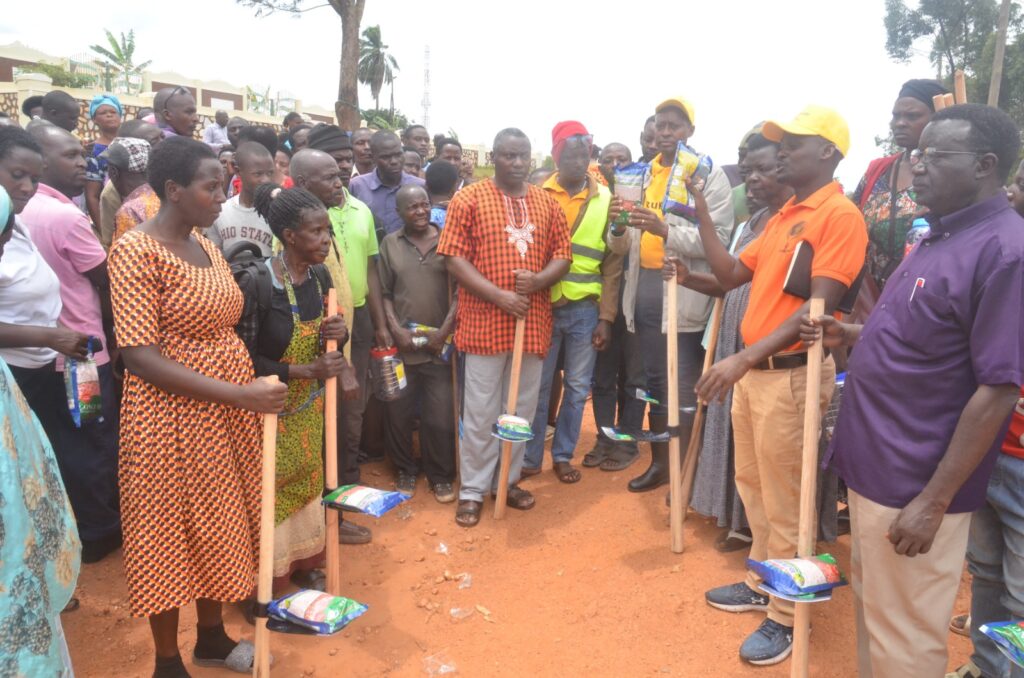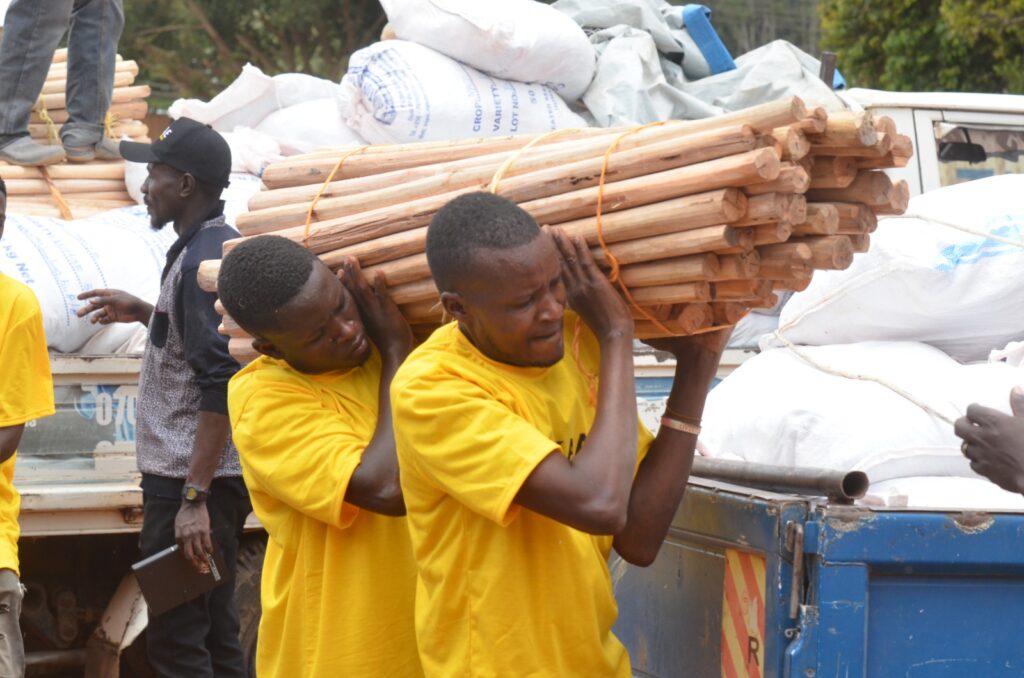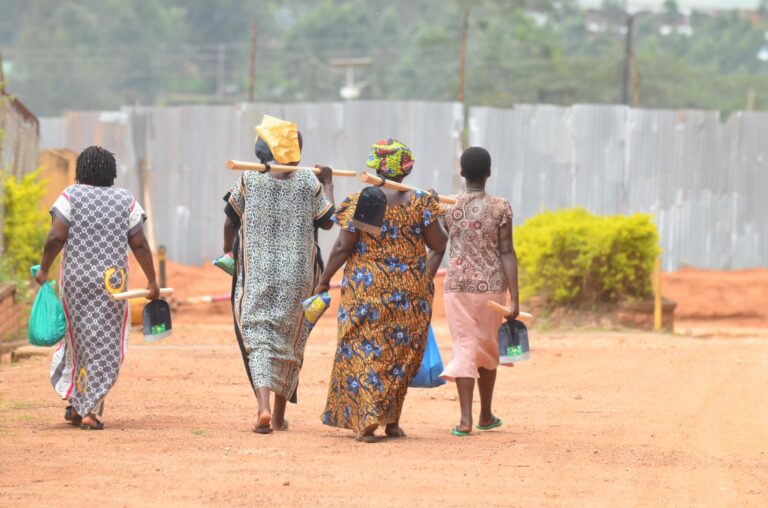A planned donation event by Hon. Robert Mwesigwa Rukaari, the Member of Parliament for Mbarara City North Division, turned contentious when residents of Bunusya Ward flatly rejected the agricultural tools he was distributing.
The residents, visibly frustrated, demanded that the MP fulfill his 2021 campaign promise to connect their community to the national electricity grid instead.
The distribution of hand hoes was part of Rukaari’s ongoing efforts to promote agriculture in his constituency.
Known for his support of grassroots farming, the MP had previously provided sugarcane cuttings and cassava tubers to farming households.
However, this time, the gesture was met with outright resistance and public criticism.
Residents gathered at the distribution site expecting a long-awaited update on the electrification project, but tensions flared when they realized the visit was intended to distribute basic farming implements.
Many refused to take the hand hoes, with some walking away in protest, while others voiced their displeasure openly.
“We are not lazy. We know how to farm,” said Jane Atwine, a resident.
“But we can’t keep digging forever with hoes when the rest of the country is advancing. We need electricity in our homes and schools. That is what he promised us.”
Even more puzzling to the residents was the idea of receiving hand hoes in what is technically part of a city division.
Bunusya Ward, although still semi-rural, is officially under Mbarara City North Division, an area that many believe should be prioritizing urban development over subsistence farming.
“This is supposed to be a city,” said Emmanuel Musinguzi, a local youth.
“We wonder how city dwellers are being given hoes as if we’re in a remote village. Why are we talking about digging when we should be talking about electricity, street lights, and internet connectivity?”
Rukaari, who was elected to Parliament in the 2021 general elections, campaigned on a platform that emphasized development, infrastructure improvement, and agricultural empowerment.

Electrifying underdeveloped areas such as Bunusya Ward was a key point in his manifesto—a promise that residents say remains unfulfilled nearly four years into his term.
“There’s no single pole, no transformer, not even a plan being communicated to us,” complained Samuel Tumwine, a boda boda rider from the area.
“But every time elections come near, we start seeing hoes and seedlings. We are tired of empty promises.”
The residents argue that access to electricity is not just a convenience but a necessity that could transform their socio-economic conditions.
Local businesses, schools, and clinics struggle to function without reliable power.
Many students in the area study by candlelight or kerosene lamps, and small businesses cannot grow due to lack of electricity.
Efforts to get a comment from Hon. Rukaari on the residents’ reaction were unsuccessful by press time.
However, aides at the event suggested that the hand hoe distribution was just one of several ongoing initiatives aimed at improving livelihoods in rural parts of the constituency.
“He has always believed in empowering people through agriculture,” said one aide who preferred anonymity.

“Electricity is a priority, but it involves coordination with the Ministry of Energy and Rural Electrification Agency, which takes time. Meanwhile, food security must be maintained.”
Despite such reassurances, many residents say they are losing faith in their MP.
They expressed concern that unless there is visible progress on electrification before the next election cycle, their support for Rukaari may not continue.
Local political analysts say the incident is a reminder of the growing disconnect between political leaders and their constituents in some parts of the country.
“Gone are the days when hand hoes and seeds could pacify a restless electorate,” said a Mbarara based political analyst.
“People want tangible development. They want roads, electricity, education, and access to health care. Leaders who fail to transition from symbolic to substantive service delivery risk being voted out.”
The incident in Bunusya underscores a broader challenge for politicians who rely heavily on agricultural symbolism to maintain rural support.
While agriculture remains a backbone of Uganda’s economy, residents—especially those in rapidly urbanizing areas like Mbarara City—are increasingly demanding infrastructure, innovation, and access to modern amenities.
As the political temperature begins to rise ahead of the 2026 general elections, Hon. Rukaari and other MPs across the country may need to reassess their development strategies to stay aligned with their constituents’ evolving expectations.

